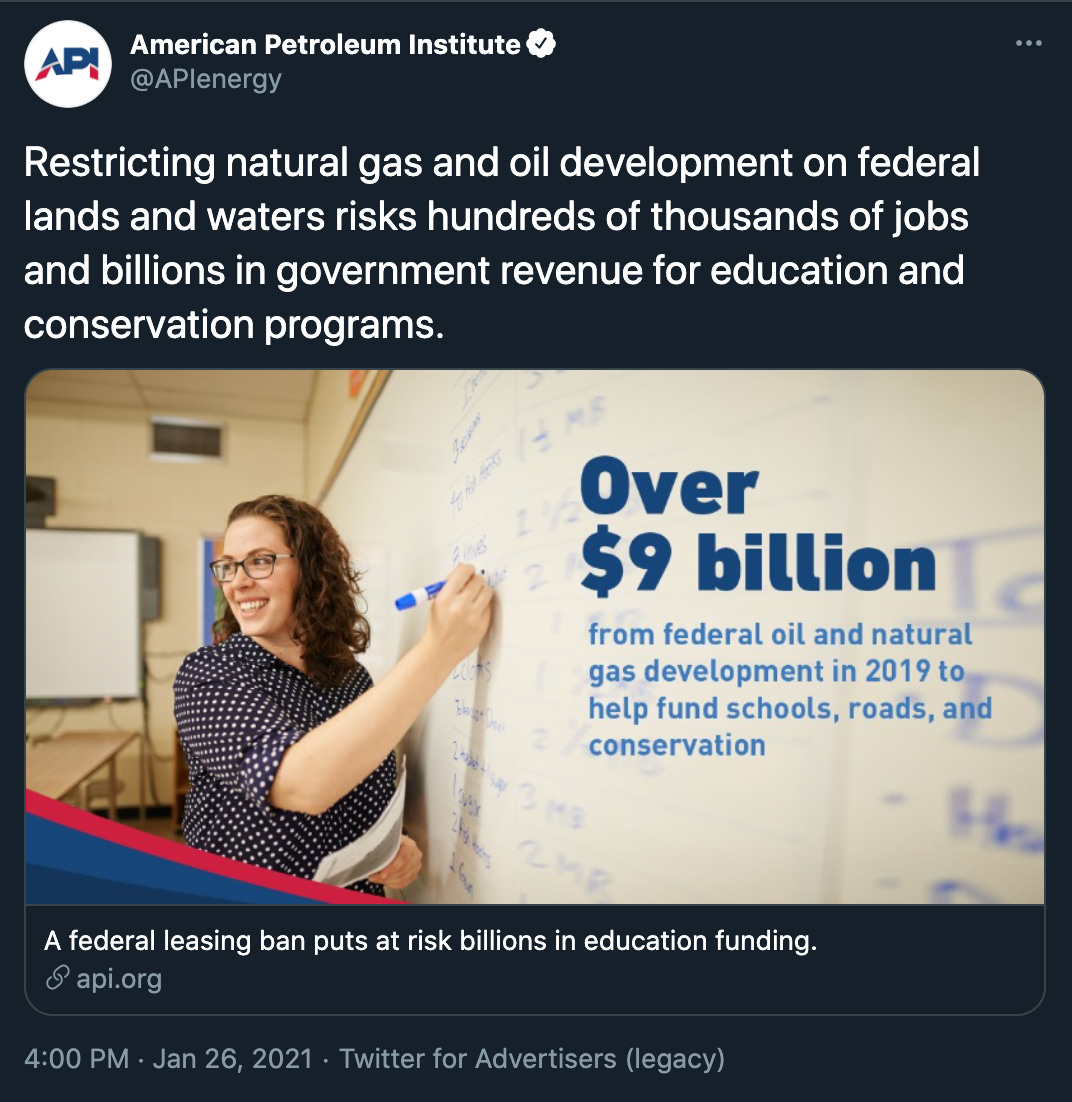Twitter's Big Oil ad loophole
Climate groups can't pay Twitter to spread political content. But the oil industry can, and it's ramping up its efforts alongside Biden's climate push.

Twitter has been allowing the oil industry to violate the company’s ban on political ads, a HEATED investigation has found.
As President Joe Biden advanced numerous executive orders last week targeting fossil fuels—the leading cause of climate change—…


